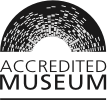Guest blog by the Friends of Caversham Court.
The kingdom of England ruled from Caversham in spring, 1219? Residents of Caversham will have an affection for this suburb north of the Thames, but if you’re stuck in a traffic jam going across the river, it’s hard to think of it as the site of truly historic events. Was there once a royal palace there, as well as in Reading Abbey? How can Caversham have been such an important spot in the 13th century?
The clue is a narrow lane known as The Causeway, leading off Star Road to the east of Reading Bridge. The Causeway leads out across the flood plain to Dean’s Farm, now an upmarket housing estate, but thought to be the site in medieval times of a substantial manor house, possibly moated. This was the manor house of William Marshal, Earl of Pembroke, and it was here that he came home to die in spring 1219 (this year marks the 800th anniversary of his death at Caversham). Marshal was not just lord of Caversham, he had lands across England, Wales and Ireland as well, mostly brought to him through his marriage to an immensely wealthy heiress, Isabel de Clare.

Dean's Farm, today. The site of William Marshal's moated manor house.

Caversham Mill by Edmund Havell, 1852 (museum no. 1931.66.1). This was located just to the west of Marshal's manor house.
Before the body was taken from the precinct
Mass was said in the chapel
That he himself had made, glorious and beautiful.
- Account of William Marshal's body being taken from Reading Abbey
In 1219 William Marshal was over 70, a good age for those times. Described as “the greatest knight to be found in all the world” by his contemporaries, he had had a glittering career. The landless second son of a middle-ranking nobleman, he trained as a knight, taking part in jousts and tournaments , and then had worked his way up, serving under four kings - Henry II, Richard the Lionheart, King John, and the boy King Henry III, for whom he was regent.
As regent, William Marshal re-issued Magna Carta, thus ensuring that it survived. He also fought and won the battle of Lincoln against a French invasion force. And it was as regent that he ruled the realm from his Caversham manor house, during his last illness. Henry and the court stayed in the royal residence at Reading Abbey, across the Thames.
Since the start of his illness Marshal had confessed his sins every eight days to Abbot Simon of Reading. After his death on 14 May his body was carried to the rich chapel he had founded in the church of Reading Abbey. His wife and son gave 100 Sous to the abbey while his body lay there, then it was taken to Staines, and from there to Westminster and finally for burial at the Temple Church in London.
What was the key to such a spectacular rise? William Marshal had a number of lucky breaks, to be sure, and there were periods when he fell from favour, particularly under the notoriously fickle “Bad” King John. Marshal certainly must have been a smart operator to negotiate the tricky politics of the medieval court, but his loyalty to the kings he swore allegiance to gave him a reputation for steadfastness which helped make his fortune.

Castle Motte at Hamstead Marshall, Berkshire © Copyright Michael Hand (CC BY-SA 2.0). This castle near Newbury was held by William's father John. The village takes its name from the Marshal family.
800th Anniversary Events - 2019
There are several events marking William's anniversary:
Saturday 11 May 2019 Pop-up William Marshal Exhibition at the Abbey Gateway, Reading
Join the Friends of Caversham Court Gardens and take a peek inside the newly restored medieval Abbey Gateway. This May is the 800th anniversary of the death of William Marshal at Caversham. Find out more about ‘The Greatest Knight’ who, as regent for the boy king Henry III, defeated a French invasion force and ensured the survival of Magna Carta. Please note that the Gateway has no step free access and there are uneven steps and floors.
All ages, 10am - 3pm
Free, drop in (30 places max per session, there may be a short wait)
Saturday 11 May 2019 Afternoon Talk: William Marshal, Reading Museum
May is the 800th anniversary of death of William Marshall at Caversham. His body lay in state at Reading Abbey until it was transported for burial at Temple Church in London. Discover more about his life in this fascinating talk with Dr Elizabeth Matthew of Reading University.
Adults, 3pm – 4pm
£5, booking essential via our website
Tuesday 11 June Evening Talk: The life of William Marshal, Thameside School, Harley Rd
Join the Caversham and District Residents Association for an illustrated talk from Tom Asbridge of Queen Mary University of London, author of The Greatest Knight.
Adults, 7.30pm - 9.30pm
Free but please contribute towards a permanent memorial, for details see www.cadra.org.uk





